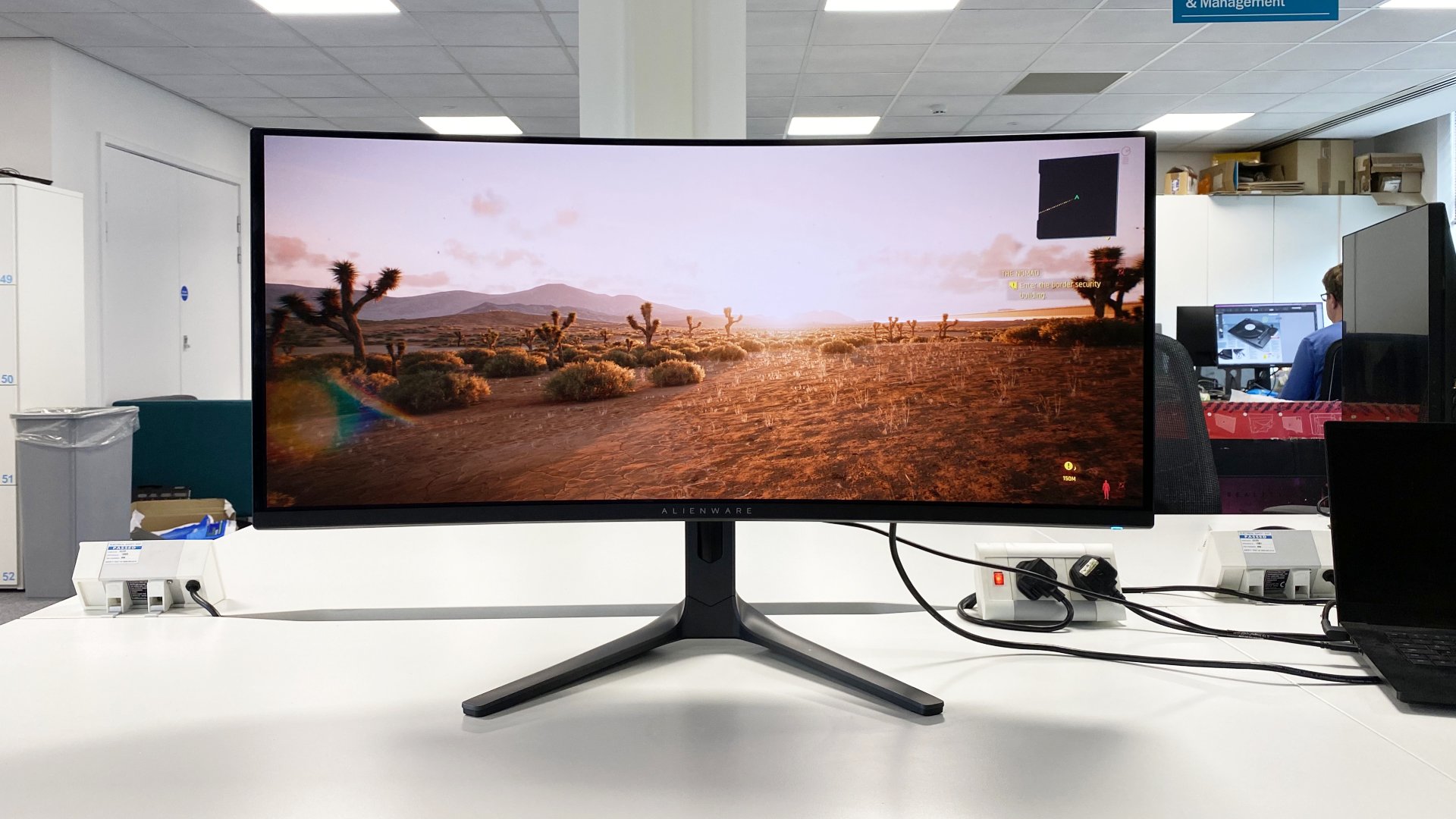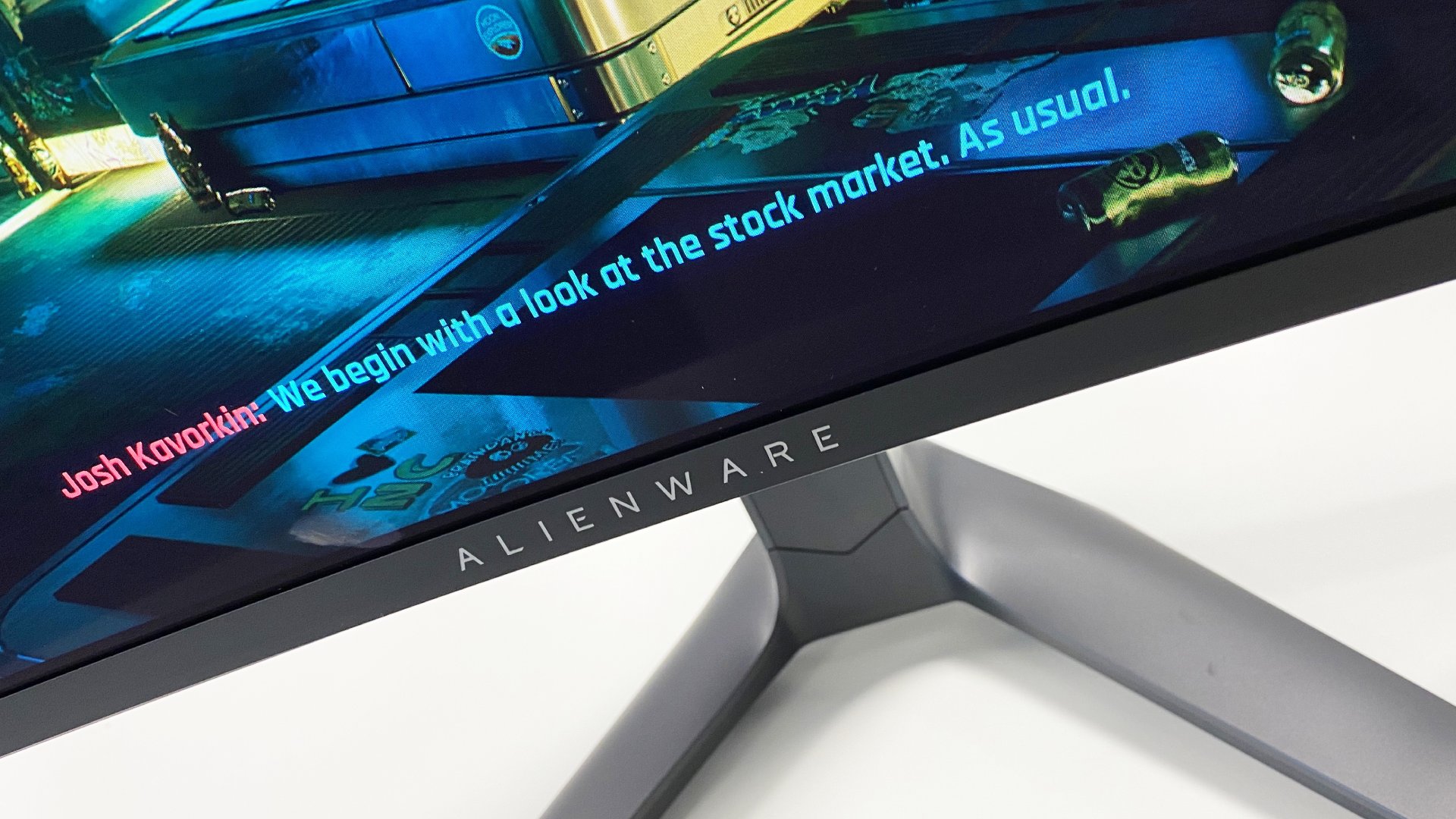
Samsung has reportedly inked a new deal to buy OLED panels from arch rival LG. Superficially, that seems like an odd move. After all, Samsung only recently got back into the OLED game itself with its much vaunted QD-OLED panel tech. So could the move possibly signal plans for Samsung to exit OLED manufacturing after all?
That would be a pity given that, so far, we've generally preferred gaming monitors based on Samsung OLED tech, such as the Alienware 34 AW3423DWF , to those using LG's OLED panels.
But very likely there's no need to panic. According to Reuters, the deal involves 77-inch and 83-inch panels. In the TV market, Samsung currently sells 55-inch, 65-inch and 77-inch OLED TVs. For PC monitors, Samsung supplies a 34-inch ultrawide QD-OLED panels to the likes of Alienware and Philips, among others, and indeed sells a monitor model of its own based on the 34-inch panel, the pricey Samsung G8 G85SB OLED Ultra.
Anyway, the deal with LG doesn't automatically imply anything about Samsung's commitment to OLED tech. For starters, it produces a zillion OLED panels annually for smartphones including its own Galaxy handsets and Apple's iPhone.
But even in the market for the larger panels that go into TVs and monitors, the deal could easily be as much about smoothing out supply chains and filling out its product stack, from a TV production perspective, as it is any indication that Samsung doesn't want to make OLED panels itself.

It's always worth remembering with Samsung what a huge, sprawling conglomerate we're talking about. Samsung Electronics will buying OLED panels from LG. But it's another part of the empire, Samsung Display, that makes OLED panels. And they are ultimately separate entities under common ownership rather than, say, different divisions in the same company.

Best CPU for gaming: The top chips from Intel and AMD
Best gaming motherboard: The right boards
Best graphics card: Your perfect pixel-pusher awaits
Best SSD for gaming: Get into the game ahead of the rest
No doubt Samsung Display would be Samsung Electronics' preferred source of OLED tech. And, equally, there will surely be a degree of alignment and shared planning. But if Samsung electronics sees an opportunity to sell, say, 83-inch OLED TVs and Samsung Display doesn't have a panel to offer in the short term, well, you might end up with just this kind of deal.
The only issue we see is how the LG-powered TVs are marketed. Samsung goes heavy on the whole QD-OLED thing and it's not clear how LG's WOLED tech fits within that marketing narrative.
Back on the PC, as we reported recently, both LG and Samsung are working on 27-inch and 32-inch 4K OLED panels for gaming monitors. That's the panel producing arms of each company, respectively, as opposed to the monitor making subsidiaries, and thus LG's will be WOLED and Samsung's will sport QD-OLED tech.
It's not totally clear when monitors based on those panels will be available. It might not be until 2025. But all the indications are that both of the major players in large OLED displays are sticking with the technology. Samsung isn't going anywhere.







